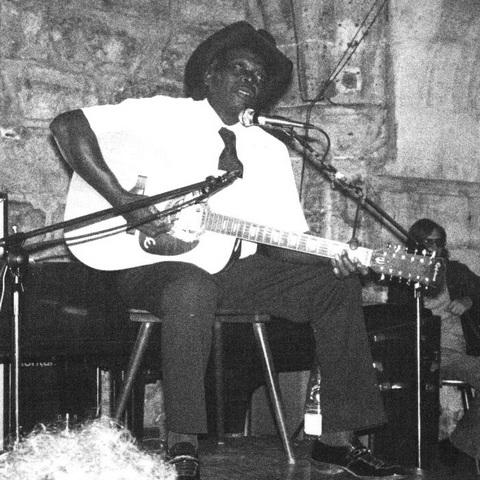Robert Pete Williams is a unique and haunting voice in the world of American blues. Known for his raw, emotional style and deeply personal lyrics, Williams stood apart from many of his contemporaries. His life and music are filled with extraordinary events and powerful stories. Here are five fascinating curiosities about this remarkable bluesman.
1. He Was Discovered in Prison
One of the most remarkable facts about Robert Pete Williams is that he was discovered while serving time in Angola Prison in Louisiana. In 1956, ethnomusicologists Dr. Harry Oster and Richard Allen were recording inmates for a project documenting prison music. When they heard Williams sing, they were struck by his originality and emotional depth. His powerful songs, often about prison life and personal suffering, captivated audiences far beyond the prison walls.
2. His Music Was Largely Self-Taught and Unconventional
Williams had no formal musical training and developed a highly individual style of guitar playing and songwriting. His rhythm, tuning, and structure often defied standard blues conventions. Instead of adhering to the 12-bar blues form, Williams would shift tempos and chord progressions freely to match the flow of his lyrics. This gave his music a spontaneous, deeply expressive quality that continues to fascinate blues fans and scholars.
3. He Received a Pardon Thanks to His Music
Williams was serving a life sentence for a fatal shooting he claimed was in self-defense. The exposure from his prison recordings and growing support from the folk and blues communities helped lead to a commutation of his sentence in 1959. He was eventually paroled, and later received a full pardon. His story is a striking example of how music can change a life—and how art can influence justice.
4. He Performed at the Newport Folk Festival
After his release from prison, Williams began to perform at folk and blues festivals across the United States. One of his most significant appearances was at the 1964 Newport Folk Festival, where he played alongside other greats like Mississippi John Hurt and Skip James. His performances, marked by intensity and authenticity, helped introduce his unique style to a wider audience during the blues and folk revival of the 1960s.
5. His Legacy Influenced Modern Blues and Folk Artists
Though not as commercially successful as some of his peers, Robert Pete Williams’ influence is deep and lasting. His fearless storytelling, emotional intensity, and unconventional techniques inspired later generations of blues and folk musicians. Artists who seek a raw, unfiltered expression often cite him as a key influence. His recordings, many of which were made in stark and intimate settings, remain powerful documents of personal and cultural history.
Conclusion
Robert Pete Williams lived a life shaped by hardship, but his music turned that hardship into something timeless and deeply human. From prison cell to festival stage, his journey is one of resilience, creativity, and the transformative power of the blues. His voice continues to echo through the years, offering listeners a rare glimpse into a truly original blues mind.

Comments are closed